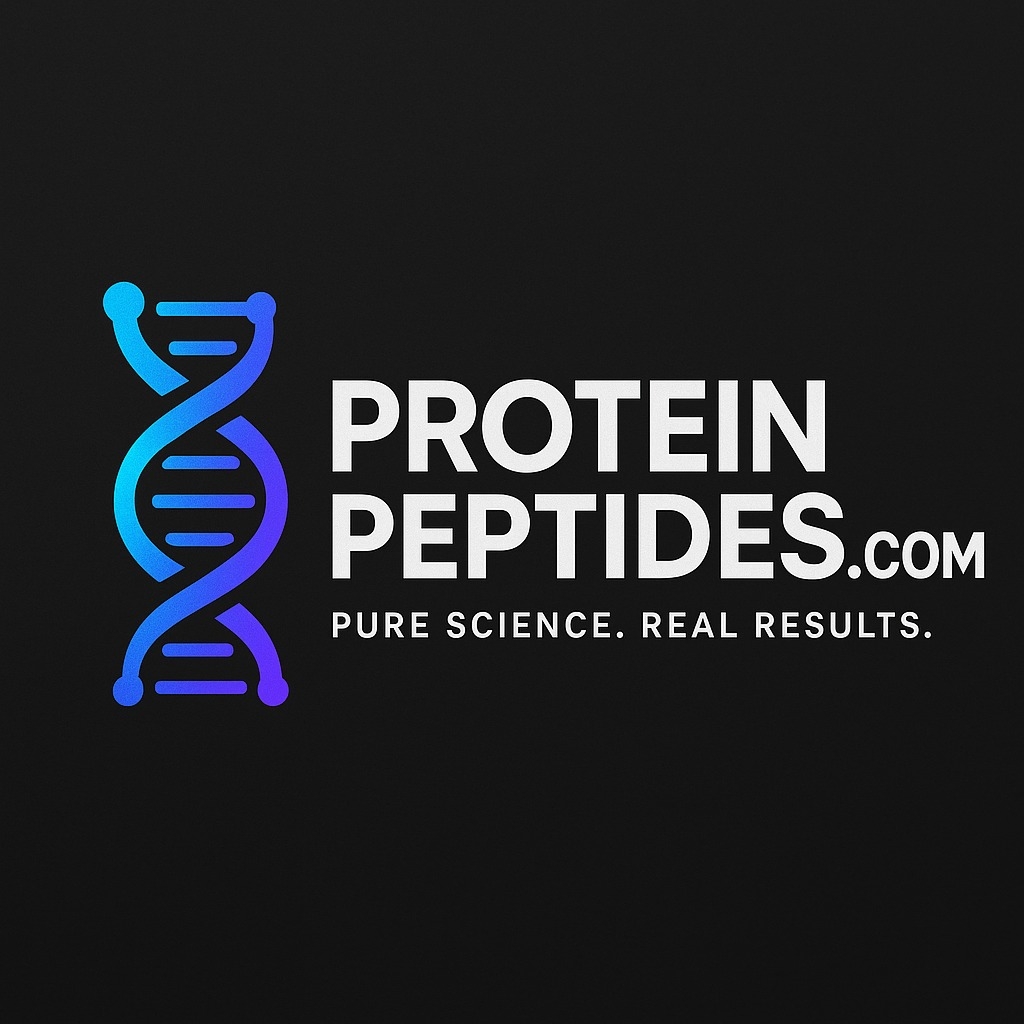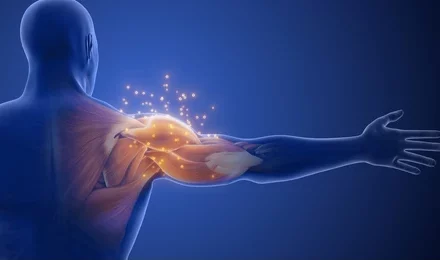Peptides Enhance Muscle Healing
Muscle healing is essential for recovery, performance, and overall health, particularly for athletes, fitness enthusiasts, and those recovering from injuries. Peptides, small chains of amino acids, have emerged as groundbreaking tools for accelerating muscle repair and promoting tissue regeneration. By leveraging the body’s natural processes, peptides enhance healing and improve recovery times. This article delves into the science behind peptides, their mechanisms, and how they play a pivotal role in muscle healing.
The Science of Peptides
Peptides are naturally occurring compounds that act as messengers within the body. They regulate various biological processes, including tissue repair, hormone regulation, and inflammation control. Peptides work by binding to specific receptors on cells, triggering responses that accelerate healing, enhance muscle regeneration, and improve overall function.
When muscles are damaged, whether from strenuous exercise, injury, or surgery, the body initiates a repair process. Peptides play a crucial role in this by stimulating the production of growth factors, improving blood flow, and reducing inflammation—all critical for effective muscle healing.
Key Peptides for Muscle Healing
Several peptides have proven particularly effective in promoting muscle repair:
- BPC-157 (Body Protection Compound 157):
BPC-157 is a synthetic peptide derived from a protein found in the stomach. Known for its healing properties, it accelerates the repair of muscles, tendons, and ligaments. By increasing blood flow to damaged tissues, BPC-157 enhances nutrient and oxygen delivery, promoting faster recovery. - TB-500 (Thymosin Beta-4):
This peptide plays a significant role in cell migration and differentiation, two critical processes in tissue regeneration. TB-500 also reduces inflammation, allowing for smoother and quicker healing of muscle injuries. - IGF-1 (Insulin-Like Growth Factor-1):
IGF-1 is vital for muscle repair and growth. It promotes protein synthesis, the building block of muscle tissue, while also preventing muscle degradation. IGF-1’s ability to stimulate satellite cells, which are responsible for muscle regeneration, makes it a powerhouse in muscle healing. - Collagen Peptides:
Collagen is a primary component of connective tissues, including tendons and ligaments. Collagen peptides enhance the strength and elasticity of these tissues, reducing the risk of re-injury and improving overall structural integrity. - GHK-Cu (Copper Peptide):
This peptide is well-known for its ability to promote wound healing and tissue repair. GHK-Cu stimulates the production of collagen and elastin, critical for maintaining muscle and connective tissue health.
How Peptides Enhance Muscle Healing
Peptides influence muscle healing through multiple mechanisms, including:
- Stimulating Tissue Regeneration: Peptides like BPC-157 and IGF-1 activate growth factors and satellite cells that repair damaged muscle fibers and encourage the growth of new, healthy tissues.
- Reducing Inflammation: Inflammation is a natural part of the healing process but can slow recovery if excessive. Peptides mitigate chronic inflammation, creating an optimal environment for healing.
- Enhancing Blood Flow: Improved circulation ensures the delivery of essential nutrients and oxygen to injured areas, accelerating tissue repair.
- Preventing Muscle Loss: During periods of inactivity or recovery, peptides help preserve lean muscle mass, ensuring strength and functionality are maintained.
- Promoting Collagen Production: Strong connective tissues are vital for muscle stability and injury prevention. Peptides enhance collagen synthesis, improving the resilience of muscles and surrounding structures.
Benefits of Peptides in Muscle Healing
The advantages of peptides in muscle recovery extend beyond faster healing. Key benefits include:
- Reduced Recovery Time: Peptides significantly shorten the duration of healing, allowing individuals to resume activities sooner.
- Improved Strength and Function: Enhanced muscle regeneration leads to stronger, healthier tissues capable of withstanding greater stress.
- Prevention of Chronic Issues: By supporting proper healing, peptides reduce the likelihood of lingering injuries or chronic pain.
- Support for Aging Muscles: As we age, the body’s natural healing processes slow. Peptides counteract this decline, maintaining muscle health and vitality.
- Enhanced Quality of Life: Faster recovery and reduced discomfort improve overall well-being, enabling individuals to stay active and enjoy daily activities.
Real-World Applications
Peptides are used in various scenarios to enhance muscle healing:
- Sports Medicine: Athletes and active individuals benefit from peptides’ ability to accelerate recovery from strains, sprains, and overuse injuries.
- Post-Surgical Recovery: Following surgeries, peptides aid in tissue repair and reduce scarring, expediting the healing process.
- Chronic Pain Management: Individuals with conditions like tendonitis or arthritis find relief through peptides that reduce inflammation and promote tissue regeneration.
- Fitness Recovery: For gym-goers and fitness enthusiasts, peptides help minimize soreness and improve recovery from intense workouts.
Safety and Usage
While peptides offer significant benefits, their use should be approached responsibly. Factors such as dosage, administration method, and individual health conditions must be considered. Peptides are typically administered via injection, though oral and topical formulations are being developed.
Potential side effects include mild redness or irritation at the injection site, fatigue, or digestive discomfort. To ensure safety and efficacy, it is crucial to use peptides under the guidance of a healthcare professional.
Integrating Peptides with Recovery Practices
For optimal muscle healing, peptides should complement other recovery practices:
- Nutrition: Adequate protein and nutrient intake supports muscle repair and growth.
- Rest and Sleep: Quality sleep is vital for recovery, as the body repairs tissues during deep sleep cycles.
- Hydration: Proper hydration improves circulation and supports metabolic processes necessary for healing.
- Physical Therapy: Stretching, massage, and rehabilitation exercises enhance mobility and prevent stiffness.
The Future of Peptide Therapy
As research continues, peptides are poised to become even more integral to muscle healing. Advances in personalized medicine will allow for tailored peptide protocols based on individual genetics and health profiles. Additionally, innovations in peptide delivery methods, such as patches or oral supplements, will increase accessibility and convenience.
Closing Thoughts
Peptides represent a transformative approach to muscle healing, offering faster recovery, reduced inflammation, and improved tissue regeneration. Whether you’re an athlete, fitness enthusiast, or someone recovering from an injury, peptides provide a powerful tool to support your healing journey. With proper use and guidance, peptides can help you regain strength, reduce downtime, and maintain an active, fulfilling lifestyle.
Peptides Enhance Muscle Healing
BPC-157 (Body Protection Compound-157)
- Promotes healing of muscle, tendon, ligament, skin, bone in animal models; upregulates growth hormone receptor and supports angiogenesis and proliferation. (medscimonit.com, PMC)
- Demonstrates wound healing, anti-inflammatory effects, and thrombosis prevention in preclinical models. (MDPI)
- Human trials are extremely limited; most findings are based on rodent or preclinical research. (medscimonit.com)
TB-500 / Thymosin Beta-4
- In animal and cell studies, TB‑500 accelerates wound healing, reduces inflammation, and promotes tissue regeneration. (Ortho And Wellness)
- Thymosin beta‑4 supports angiogenesis, cell migration, and tissue repair; now under clinical investigation for various injuries. (Wikipedia)
- Not approved therapeutically for humans. (Therapeutic Goods Administration (TGA))
IGF-1 (Insulin-Like Growth Factor-1)
- IGF‑1 enhances muscle repair by stimulating protein synthesis, regulating degradation pathways, and activating satellite cells. (PMC)
- Local IGF‑1 supplementation promotes skeletal muscle regeneration and integrity in animal models. (Telethon)
GHK-Cu (Copper Peptide)
- GHK‑Cu stimulates collagen and extracellular matrix synthesis, angiogenesis, fibroblast activation, and broad tissue repair across multiple organs in animal studies. (PMC)
- Demonstrated wound healing efficacy in diabetic ulcer patients and supports skin regeneration. (liebertpub.com)







